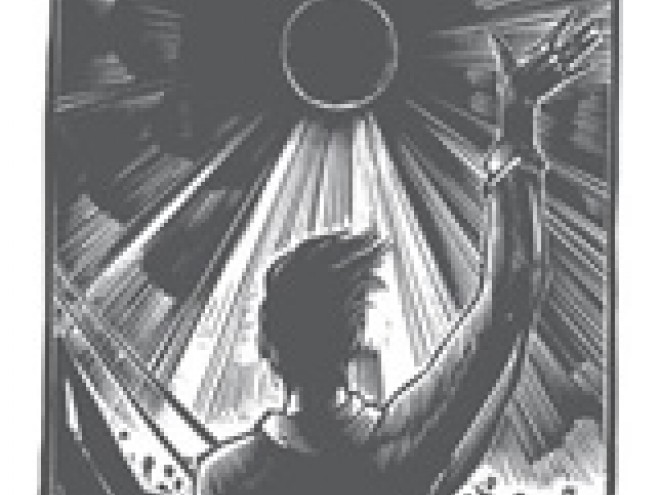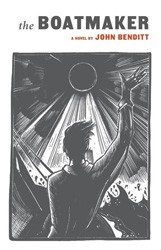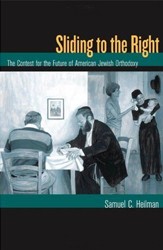
Earlier this week, John Benditt pondered whether or not Proust was Jewish and wrote about identity and writing. The Boatmaker is his debut novel. He has been blogging here all week for Jewish Book Council’s Visiting Scribe series.
Some people have said that my novel, The Boatmaker, is a fable, that it has a fairy-tale quality, that it is a fantasy. I suppose that’s alright, but I’m not sure I agree. I think it can equally well be read as reportage, street-corner sociology, direct from my little corner of the world, which is called South Williamsburg. In my neighborhood there are three social groups, each on its own trajectory. One is growing. One is digging in. One is being displaced, slowly but surely. The high-end gentrifiers are growing in numbers. Their incursion was slowed by the financial collapse that began in 2007, but it’s resumed with renewed intensity as the economy has rebounded. The Hispanic community here is on the opposite trajectory: on their way to other neighborhoods, a little at a time. The ones who are digging in are the Chasidim. Property values on Kent Avenue along the river have gone up so much that it is difficult for them to buy up property and build more of the housing they prefer. But they aren’t going anywhere. Each of these groups speaks its own language. They can speak to each other if they want, but mostly they don’t. In fact, for the most part they don’t even see each other. Of course I don’t mean physically. They see each other’s corporeal existence well enough; they’re not blind. But socially, as human beings, they don’t exist for each other. The groups pass by and through each other without really touching. Usually. One Friday evening as I went out, a man approached me on the street near my building. He was one of my very Orthodox neighbors. “Could you come up to my apartment?” he said. “Why?” I said. I’ve lived in New York too long. I don’t do anything just because someone asks. “According to our laws,” he said, “I cannot operate any machines. Even the light, which is a machine. I need someone to turn off the lights inside.” “Alright,” I said. I went in. It was the first time I had ever been in one of the houses with the barred cages around the windows, where in the fall the little huts appear suddenly in the rain, like the last fruits of the season. On the way out, he thanked me. “So you needed me to be the Shabbos goy,” I said. He looked surprised. “You are Jewish?” “Yes.” “Your mother and your father both?” “Yes,” I said, “both of them. And also I had a bar mitzvah. I would be happy to tell you my Torah portion if you like.” Again, he seemed surprised. A little concerned. We looked at each other for a moment, each man in his own thoughts, one question hovering over both of us like a recording angel: “Who is Jewish?”
John Benditt had a distinguished career as a science journalist. He was an editor at Scientific American and at Science before serving as editor in chief of Technology Review. Read more about him and his work here.
Related Content
- Encountering the Hasidic Enclave by Michael Levin
- What We Talk About When We Talk About Hasidim by Shulem Deen
- A House Divided by Matthew Shaer
John Benditt began as a poet. He studied with Adrienne Rich at Swarthmore College and was awarded the John Russell Hayes Poetry Prize by Robert Creeley. He went on to have a distinguished career as a science journalist. He was an editor at Scientific American and Science and served as Editor in Chief of Technology Review, published by MIT. The Boatmaker is his first novel.



